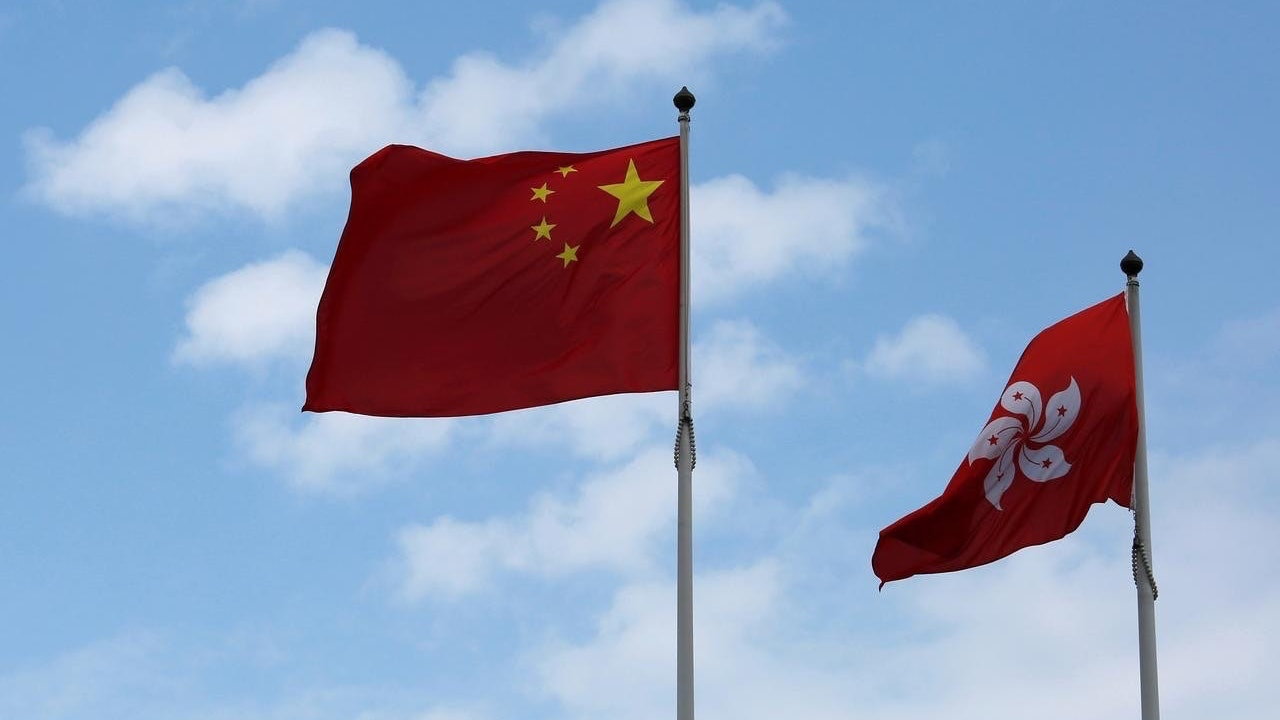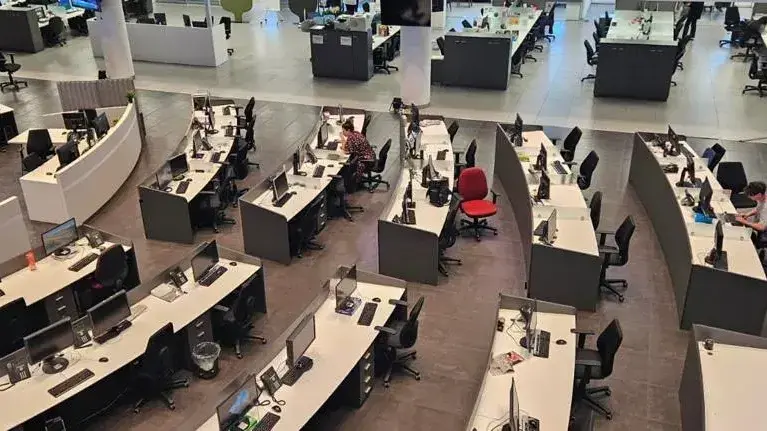01 perspective
Written by: Comment Editor
2019-12-06 07:00
Last updated: 2019-12-06 07:00On Wednesday (4th) Chief Executive Lin Zheng Yue'e attended the "Constitution Day" symposium, and once again stated that "in accordance with the requirements of" one country, two systems ", the relevant systems and mechanisms for the implementation of the Constitution and the Basic Law of the SAR" should be improved. Undoubtedly, one country, two systems is the most critical and the most talked about concept of Hong Kong politics today. The central government has frequently stated recently that Hong Kong's implementation of one country, two systems is deficient, and its enforcement mechanism must be improved. After half a year of social unrest, I believe that no matter what political stance, people will admit that "one country, two systems" is "ill." Proponents of the demonstration believe that the central government is interfering in Hong Kong affairs, and that the name of one country, two systems exists. Those who oppose the demonstration believe that the Hong Kong government cannot govern under one country, two systems, and some even demand "one country, one system." Unfortunately, although "One Country, Two Systems" has been hanging on everyone's lips, obviously it has not been regarded as a systematic concept. People of different political positions take whatever they want and distort their meaning at will. For Hong Kong politics, the most important task next is probably to sort out the concrete connotation of the concept of "one country, two systems."
Regarding the fundamental understanding of one country, two systems, "Hong Kong 01" has always emphasized that we must never say "two systems" instead of "one country." In 2017, when President Xi Jinping attended the inauguration ceremony of the new Hong Kong government, Hong Kong stated that Hong Kong must grasp the relationship between "one country" and "two systems". "" One country "is the root and deep roots can be Ye Mao;" One country "is This is the only way to achieve prosperity. " At a hierarchical level, Hong Kong is a special administrative region subordinate to the central government and directly responsible to the central government. It cannot be completely non-interfering. China's sovereignty over Hong Kong has also spawned the phrase "full governance". Its high degree of autonomy with Hong Kong should not be regarded as mutually exclusive. In fact, the premise of Hong Kong's high degree of autonomy must be authorized. Who grants this power? ? Obviously it can only be the central government. In the constitutional system, the Hong Kong Basic Law is a national legal document derived from the Chinese Constitution. In the constitutional order, the Basic Law could not have stood on par with the Chinese Constitution, let alone overriding it.
The relationship between "full governance" and "high autonomy" reflects the dominance of "one country" over "two systems." (Photo / Photo by Yu Junliang)
Moreover, "one country" and "two systems" are not only a matter of who comes first, but also a matter of compatibility. Only when the "one country" principle is respected can the "two systems" be successfully implemented. Some people describe this fragmented interpretation of one country, two systems as the idea of "independent harbor". The so-called "independence port" is not a "Hong Kong independence" that pursues Hong Kong as a national independence, but a pursuit of Hong Kong as a political entity that completely interferes with the Chinese government. This kind of taken for granted makes people laugh. Regardless of whether it is a pan-democracy or an organizational system, many Hong Kong people in the past, when they understood one country, two systems, were more or less inclined to this "independent Hong Kong" thinking. However, this is obviously not the original intention of the one country, two systems design, nor is it the mainstream perception of Hong Kong when it returned. In the past, the existence of the "two systems" did not create a huge conflict with "one country", so there was nothing wrong between the central and the lower reaches of Hong Kong. Even the importance of "one country" was rarely discussed; Deteriorating and alienating one country, two systems, becoming a conflict between "two systems" and "one country," putting Hong Kong's interests on the opposite side of national interests, and even creating a situation of Hong Kong independence.
We must recognize that Hong Kong independence or the "independence of Hong Kong" without talking about "one country" is not Hong Kong's way out and there is no possibility. On the other hand, Hong Kong shoulders the huge mission of practicing one country, two systems, and hopes to abolish the SAR and implement "one country, one system" is not in the interests of Hong Kong and the country. Only the correct implementation of one country, two systems is the way Hong Kong should go.
"One country, two systems" is not static
When it comes to one country, two systems, there are the necessary parts mentioned above, but there are actually flexible parts. It is not a static system, but it actually has a lot of room to play. In fact, there are two sets of one country, two systems in one country at present-Hong Kong's one country, two systems, and Macau's one country, two systems. The names and spirits are the same, but the connotations are not exactly the same. How to implement and improve them must be based on local actual conditions. It depends. It is also based on this understanding that the basis of the "one country, two systems, Taiwan plan" has been said.
The one country, two systems practiced by Macao is obviously successful in respecting the national consciousness of "one country," but this depends on its unique colonial experience, political culture, and socio-economic structure. Therefore, the central government has adjusted accordingly when designing the one country, two systems in Macau. . For example, the Macao Basic Law Drafting Committee was established later than Hong Kong, and the compilation of the Macao Basic Law also largely referred to the Hong Kong Basic Law, but the two are not exactly the same. The Basic Law of Macao does not include the objective of Article 45 of the Basic Law of Hong Kong. The Chief Executive is ultimately elected by universal suffrage after being nominated by a broadly representative nominating committee in accordance with democratic procedures. This is of course taking into account the situation in Macau. In fact, Macau The mainstream public opinion did not complain about this arrangement.
After Deng Xiaoping, the former top leader of the Communist Party of China, proposed the principle of "one country, two systems, Hong Kong people ruling Hong Kong, and a high degree of autonomy" in the early 1980s, with the development of Hong Kong, the central government's ideology of governing Hong Kong has also undergone various changes and changes.
However, as the "01 Viewpoint" points out, the successful experience of Macao's one country, two systems cannot be copied to Hong Kong. Hong Kong must have one country, two systems suitable for Hong Kong. For example, although Macao's legislation on Article 23 of the Basic Law has been postponed due to the wave of opposition in Hong Kong in 2003, Macau started its legislative work in 2008 and successfully legislated on its own the following year without any major obstacles. Conversely, after Hong Kong's July 1st march in 2003, Article 23 was considered a restricted area and the legislative process has not been restarted for many years. To re-enact legislation, the government must spend more time explaining to opposition voices and creating a reasonable space for discussion. The details of the legislation must not only seriously consider how to protect national security, but also take into account the legitimate concerns of Hong Kong society. Therefore, even if Hong Kong has 23 pieces of legislation, its connotation and process cannot be resolved simply by saying "like Macau".
Taking universal suffrage as an example, the method of universal suffrage for the Chief Executive of Hong Kong must be formulated in accordance with the Basic Law and the framework of the state. This is part of constitutional ethics. For example, a "broadly representative nomination committee" already exists in the Basic Law, and it is a violation of the Basic Law to forcefully deny the request of the nomination committee. However, the space within the framework can actually be used. Although "8.31" designated the composition of the "Nomination Committee", in fact, the Hong Kong Government can still follow the actual conditions of Hong Kong and comply with the principle of "broad representation". The central government has sought to revise the number and composition of the nomination committee to better connect it with the political consensus of Hong Kong society.
What's more, the central government hopes to use one country, two systems as the plan to unify Taiwan, and the one country, two systems implemented in Taiwan cannot be exactly the same as the one country, two systems in Hong Kong or Macau. For example, Taiwan now has a system of universally elected presidents. If there is a one-country, two-system Taiwan plan, it is very unlikely to change its system, including the abolition of the general election of the chief executive of Taiwan. Considering that one country, two systems is a long-term system, Hong Kong people should understand that a correct and comprehensive understanding of the connotation and relationship between one country and two systems can only make a clear statement, and it is also a pragmatic way for Hong Kong's development.
Hong Kong and Macau are not the same, emphasis on commonality is not as good as management difference
[Interpretation 4] What to do in 2047? Central gave an answer
[01 Weekly Editorial] Breaking through the illusion and returning to reality, one country, two systems cannot tolerate "Hong Kong independence"
01 depth
Views on the Basic Law of One Country, Two Systems 01







